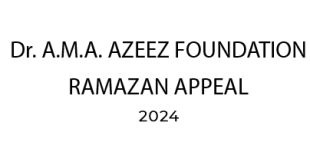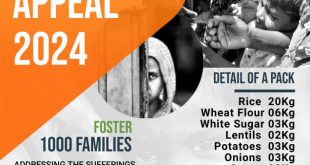Ramadan is a holy and blessed month for Muslims all around the world. Muslims fast for 29-30 days during Ramadan, which begins with the appearance of the new moon. From sunrise until sunset, Muslims observe fasts in which they don’t consume any food or water (and do not smoke). People indulge in Ramadan preparations and prepare sahur (the end of the fast) and Iftar (the beginning of the feast) as the sighting of the moon is announced (opening of the fast). When the moon is visible, people contact one another and exchange greetings such as Ramadan Mubarak or Ramadan Kareem. It comes to an end with the jubilant Eid ul Fitr celebration, which lasts three days. After that, Muslims start to prepare for Ramadan from the month of Shaban. They look out for decorative ideas and iftar dishes to enthusiastically celebrate Ramadan and Eid.
Ramadan meaning & significance
The ninth month of the Islamic calendar, Ramadan, or Ramzan, is considered auspicious and holy. It is celebrated in the month when Muhammad received the first revelations of the Holy Quran, Muslims’ holy book. Therefore, Muslims offer prayers, donate to charity, and attend communal feasts after the sunsets. Muslims observe the Roza from dawn to dusk, reading passages from the Holy Quran, praying to Allah (Salat), and gathering for the Iftaar (or the meal after sunset). During the month of Ramzan, all adult Muslims fast, except those who are sick, old, or pregnant/breastfeeding/menstruating women. Muslims start pre-Ramadan preparation before the month to zealously focus on fasting while enjoying the blessings.
Ramadan preparations and activities
Muslims worldwide fast for the whole month of Ramadan, regardless of nationality, ethnicity, race, or color. Therefore, it might be overwhelming to prepare for the Holy Month. Thus, one should start the preparation early in the month of Shaban. To help with the arrangement, here is a list of ways to prepare for Ramadan and its associated activities:
1. Prepare for Ramadan fasting
Shaban is the month that precedes Ramadan in the Islamic calendar. Shaban serves as a bridge between Rajab and Ramadan, the two sacred months. People use this month to prepare for the fasting of Ramadan. In addition, they can occasionally fast to develop the self-discipline necessary for Ramadan fasting. However, fasting is prohibited in Islam beyond halfway through the month of Sha’ban, which begins on the sixteenth day of the month. According to experts, one can fast during that time, but it is entirely voluntary. However, general counsel suggests that one avoid fasting in the last few days. This is done to establish a buffer between any voluntary fasting in Sha’ban and the obligatory fasting in Ramadan.
2. Maintain nutritious diet
Fasting throughout the month of Ramadan is a mental and physical challenge. Therefore, maintaining a well-balanced diet before and during Ramadan is essential. The components of a balanced meal work together to keep the blood sugar constant and give plenty of energy. Therefore, whole grains, fresh fruits and vegetables, milk, yogurt, eggs, and nuts should be included in one’s diet before and during Ramadan.
Recommended Ramadan dishes: Oatmeal topped with fruit and nuts, bread with a boiled egg and a piece of fruit, and a bowl of vegetable soup, a piece of whole-grain toast, and a glass of low-fat milk.
3. Make a list of duas
Offering prayers and reciting dua is an indispensable part of Ramadan traditions. Muslims around the world indulge in making supplications to the almighty Allah. Therefore, it is always good to organize these supplications and learn them by heart before entering into the holy month of Ramadan. This will not only save time but will also help a person focus on offering prayer and reaching close to Allah, the all-forgiving.
4. Recite and reflect on holy Quran
The Quran (sometimes romanized as Quran or Koran) is Islam’s major religious text, which Muslims believe is a revelation from God (Allah). Muslims are suggested to recite the Quran and reflect on it to draw closer to Allah Almighty. The good deed done before the holy month by reflecting on the Quran is highly rewarded by the almighty Allah in Ramadan. Every time one reads the Qur’an, they will discover new meaning and its usefulness in this life. It is recommended to read at a comfortable pace to comprehend the messages easily. If necessary, use a translation tool to grasp the verses.
5. Adopt good habits
While many individuals make resolutions when the New Year arrives, Muslims use the month of Ramadan to set Islamic resolutions. Therefore, Ramadan is the ideal time to cultivate and create healthy habits that will last throughout the year, in addition to forming excellent religious routines. Some of the good practices are enjoying each meal by offering grace to Allah, being polite with others, taking time to offer prayers to the creator, performing charity, and more.
6. Ramadan Iftar food plan
Because Iftar is the time to refill the energy levels, one should make every effort to eat meals from all major food groups, including fruits and vegetables, grains and alternatives, and meat and alternatives. One should limit the usage of oil and instead steam or grill the food to make their meals healthy.
Fruit and vegetables: Two portions of veggies and two servings of fruit are advised each day.
Rice and Alternatives: Wholemeal bread, brown rice, and whole-grain noodles are complex carbs that deliver energy, fiber, and minerals to the body. They provide more constant and lasting energy levels than sweet foods and desserts, which burn quickly.
Meat and Alternatives: Protein-rich foods such as lean meat, skinless poultry, fish, eggs, lentils, and low-fat dairy products should be included in the diet.
7. Plan for Eid ul Fitr
The end of Ramadan is celebrated during the first three days of Shawwal, the Islamic calendar’s tenth month. People enthusiastically prepare for the Eid ul Fitr as it is the last day of Islam’s holy month.
Here are tips for Eid preparation:
- Buy new garments for Eid
- Visit a vast central mosque, an open field, or a stadium for an Eid prayer
- Celebrate with delicious food
- Exchange gifts
- Donate to the less fortunate
8. Using Ramadan planner
All the preparation may lead to confusion and missing essential Ramadan traditions. Therefore, it is always handy to purchase a Ramadan planner from the market to conduct each tradition and make the holy month more beneficial. There are many such planners available in the market at affordable rates.
Ramadan is a beautiful time for introspection, self-improvement, kindness, and spirituality. Hence, Muslims should begin Ramadan preparations in Shaban to effectively enjoy the blessings and rewards of the holy month.
Ramadan Preparations FAQs
What are the best tips to prepare for Ramadan?
Pre-fasting, adopting good habits, maintaining balanced diets are among the top tips to prepare for Ramadan.
When should one start Ramadan preparations?
Shaban is the best time to start preparing for Ramadan.
What should one include in the Ramadan Iftar food plan?
Fruits and vegetables, grains and alternatives, and meat and alternatives should be included in the Ramadan Iftar food plan.
 Sri lanka Muslims Web Portal Diversity and Inclusiveness
Sri lanka Muslims Web Portal Diversity and Inclusiveness



